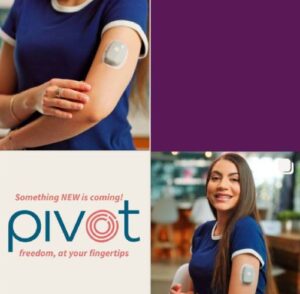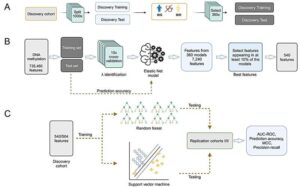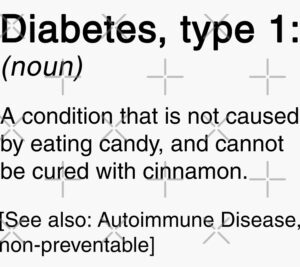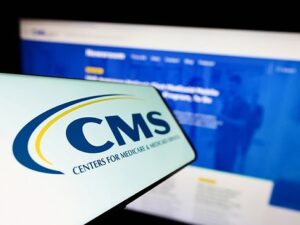In this week’s issue of The Savvy Diabetic:
-
- Tandem 7-Day SteadiSet Cleared by FDA
- Urgent Medical Device Correction: t:slim X2 Insulin Pump Malfunction 16
- 7-Day Patch Pump by Tandem Announced for 2026
- Modular Medical unveils next-gen insulin patch pump, expects FDA submission this fall
- ViCentra to launch next-gen closed-loop insulin pump system in Europe 2026
- ‘Sugar coating’ cells can protect those typically destroyed in diabetes
- Biomarkers for brain insulin resistance discovered in the blood
- What Every Provider Needs to Know About Type 1 Diabetes
- Tandem, Insulet monitoring CMS payment proposal for diabetes tech
- 9 Fruits With the Most Carbs
Tandem 7-Day SteadiSet Cleared by FDA shared by Dr. David Ahn on Instagram.com @AhnCall, 16 August 2025.
URGENT MEDICAL DEVICE CORRECTION
Malfunction 16 – Speaker
t:slim X2 Insulin Pump
July 22, 2025: The purpose of this letter is to advise you that Tandem Diabetes Care is voluntarily initiating an Urgent Medical Device Correction for t:slim X2 insulin pumps that may exhibit a higher rate of speaker failure. You are receiving this letter because our records indicate you may be operating an affected t:slim X2 insulin pump.
 If you receive this Urgent Medical Device Correction notice, it is important to acknowledge receipt of this notice by completing the online form available at the following link or by using the QR code below: Campaign.tandemdiabetes.com/FCA-Malfunction-16
If you receive this Urgent Medical Device Correction notice, it is important to acknowledge receipt of this notice by completing the online form available at the following link or by using the QR code below: Campaign.tandemdiabetes.com/FCA-Malfunction-16
To confirm whether your pump is affected, please click the following link: URGENT Malfunction 16 / t:slim X2
 What is the potential issue? During normal use, the t:slim X2 insulin pump software monitors current flowing through the speaker during use. Measurements falling within a pre-determined range indicate a functioning speaker while measurements falling outside the range indicate a speaker failure. When current measurements fall outside of the expected range, a malfunction is declared (“Malfunction 16”).
What is the potential issue? During normal use, the t:slim X2 insulin pump software monitors current flowing through the speaker during use. Measurements falling within a pre-determined range indicate a functioning speaker while measurements falling outside the range indicate a speaker failure. When current measurements fall outside of the expected range, a malfunction is declared (“Malfunction 16”).
Tandem has identified specific speaker versions that have a higher rate of Malfunction 16 events due to a wiring issue within the speaker. If a Malfunction 16 is declared on your pump, insulin delivery will stop, and the pump is no longer operational. If this happens, please contact Tandem Diabetes Care Customer Technical Support (CTS) via phone at 1-877-801-6901 or email at Techsupport@tandemdiabetes.com.
Risk: A Malfunction 16 will stop insulin delivery and terminate communication between the insulin pump and the CGM device, as well as the Tandem t:slim mobile app. If not addressed, this could result in hyperglycemia due to the malfunction, leading to the interruption of insulin delivery and the inaccurate display of real-time CGM Estimated Glucose Values (EGVs) and CGM trends. In severe cases of hyperglycemia, the user may require hospitalization or intervention from a medical professional. There have been 700 adverse events reported, with 59 resulting in injuries. There have been no reports of death.
Read more: URGENT MEDICAL DEVICE CORRECTION: Tandem t:slilm Malfunction 16 – Speaker
7-Day Patch Pump by Tandem Announced for 2026 by Dr. David Ahn on his Instagram:@AhnCall, 16 August 2025.
Modular Medical unveils next-gen insulin patch pump, expects FDA submission this fall by Sean Whooley for DrugDeliveryBusiness.com, 10 August 2025.
 Modular Medical has unveiled Pivot, its next-generation insulin patch pump technology, designed to simplify diabetes care. The company announced its new pump for “almost-pumpers” at the Association of Diabetes Care & Education Specialists Conference in Phoenix, Arizona. It aims for Pivot to target adults with a user-friendly, affordable design.
Modular Medical has unveiled Pivot, its next-generation insulin patch pump technology, designed to simplify diabetes care. The company announced its new pump for “almost-pumpers” at the Association of Diabetes Care & Education Specialists Conference in Phoenix, Arizona. It aims for Pivot to target adults with a user-friendly, affordable design.
The company showcased the first playable level of its new Pivot pump gamified training module. Level Ex, a developer of medical games, develops the module. Modular Medical stated that gamification provides a means to enhance the effectiveness and efficiency of medical training, while also improving information retention. Given the complexity of pump uptake, the company aims to provide an easy way to introduce its technology to clinicians and patients. The company expects to have training modules available at the same time as the pump’s planned launch in 2026.
Read more: Modular Medical unveils next-gen insulin patch pump
ViCentra to launch next-gen closed-loop insulin pump system in Europe next year by Sean Whooley for DrugDeliveryBusiness.com, 12 August 2025.
 ViCentra has announced its plans to launch the next-generation hybrid closed-loop automated insulin delivery system. The company plans to launch the new system, utilizing its Kaleido patch pump, in Germany and the Netherlands in early 2026. Launch plans follow the CE mark approval for Diabeloop’s DBLG2 algorithm, which will be paired with Kaleido. The Kaleido pump initially won the CE mark back in October 2024. Combining Kaleido and DBLG2 enables automated insulin delivery that can be controlled directly from the user’s smartphone. The system also utilizes the Dexcom G7 continuous glucose monitor (CGM) to complete the closed loop.
ViCentra has announced its plans to launch the next-generation hybrid closed-loop automated insulin delivery system. The company plans to launch the new system, utilizing its Kaleido patch pump, in Germany and the Netherlands in early 2026. Launch plans follow the CE mark approval for Diabeloop’s DBLG2 algorithm, which will be paired with Kaleido. The Kaleido pump initially won the CE mark back in October 2024. Combining Kaleido and DBLG2 enables automated insulin delivery that can be controlled directly from the user’s smartphone. The system also utilizes the Dexcom G7 continuous glucose monitor (CGM) to complete the closed loop.
Kaleido offers users options in terms of wearability and comes with two durable, rechargeable pumps, eliminating the need to dispose of the pump every three days. At the same time, the infusion set lasts for that three-day span. The design aims to integrate seamlessly into the user’s daily life. Kaleido offers users options in terms of wearability and comes with two durable, rechargeable pumps, eliminating the need to dispose of the pump every three days. At the same time, the infusion set lasts for that three-day span. The design aims to integrate seamlessly into the user’s daily life.
Read more: ViCentra to launch next-gen closed-loop insulin pump system in Europe next year
‘Sugar coating’ cells can protect those typically destroyed in diabetes by Mayo Clinic News Network and published on DetroitNews.com, 11 August 2025.
 After identifying a sugar molecule that cancer cells use on their surfaces to evade the immune system, researchers at the Mayo Clinic have found that the same molecule may eventually aid in the treatment of type 1 diabetes. The researchers found in a preclinical model of type 1 diabetes that it’s possible to dress up beta cells with the same sugar molecule, enabling the immune system to tolerate the cells. “Our findings show that it’s possible to engineer beta cells that do not prompt an immune response,” says immunology researcher Virginia Shapiro, Ph.D., principal investigator of the study, published in the Journal of Clinical Investigation.
After identifying a sugar molecule that cancer cells use on their surfaces to evade the immune system, researchers at the Mayo Clinic have found that the same molecule may eventually aid in the treatment of type 1 diabetes. The researchers found in a preclinical model of type 1 diabetes that it’s possible to dress up beta cells with the same sugar molecule, enabling the immune system to tolerate the cells. “Our findings show that it’s possible to engineer beta cells that do not prompt an immune response,” says immunology researcher Virginia Shapiro, Ph.D., principal investigator of the study, published in the Journal of Clinical Investigation.
“The expression of this enzyme basically ‘sugar coats’ cancer cells and can help protect an abnormal cell from a normal immune response. We wondered if the same enzyme might also protect a normal cell from an abnormal immune response,” Dr. Shapiro says. The team first established proof of concept in an artificially induced model of diabetes.
In the preclinical models, the team found that the engineered cells were 90% effective in preventing the development of type 1 diabetes. The beta cells, which are typically destroyed by the immune system in type 1 diabetes, were preserved. Notably, the researchers also found the immune response to the engineered cells appears to be highly specific, says M.D.-Ph.D. student Justin Choe, first author of the publication. Choe conducted the study as part of his Ph.D. program at the Mayo Clinic Graduate School of Biomedical Sciences and the Mayo Clinic Alix School of Medicine.
“Though the beta cells were spared, the immune system remained intact,” Choe says. The researchers were able to observe active B- and T-cells, as well as evidence of an autoimmune response against another disease process. “We found that the enzyme specifically generated tolerance against autoimmune rejection of the beta cell, providing local and quite specific protection against type 1 diabetes.”
Read more: ‘Sugar coating’ cells can protect those typically destroyed in diabetes
Biomarkers for brain insulin resistance discovered in the blood by Lisa Lock at the German Center for Diabetes Research and published on MedicalXpress.com, 11 August 2025.
 If the brain no longer responds appropriately to insulin (insulin resistance), this can lead to weight gain, diabetes, and Alzheimer’s disease. Researchers at the German Center for Diabetes Research (DZD) in Potsdam and Tübingen have discovered minor chemical modifications to genetic material (epigenetic changes) in the blood that indicate how well the brain responds to insulin. These markers could help detect insulin resistance in the brain through a simple blood test. The findings are published in Science Translational Medicine.
If the brain no longer responds appropriately to insulin (insulin resistance), this can lead to weight gain, diabetes, and Alzheimer’s disease. Researchers at the German Center for Diabetes Research (DZD) in Potsdam and Tübingen have discovered minor chemical modifications to genetic material (epigenetic changes) in the blood that indicate how well the brain responds to insulin. These markers could help detect insulin resistance in the brain through a simple blood test. The findings are published in Science Translational Medicine.
“Insulin is not only involved in metabolism but also plays a key role in the brain with regard to cognitive functions, appetite regulation, and energy homeostasis,” explains Prof. Dr. Stephanie Kullmann. She is a researcher at the Institute for Diabetes Research and Metabolic Diseases (IDM) of Helmholtz Munich, affiliated with the University of Tübingen. She is the first author of the current publication.
To date, the detection of brain insulin resistance remains cost and time-intensive, with no biomarkers currently available. “Our new study shows that we can extract epigenetic signatures from the blood that very precisely indicate whether the brain is still responding to insulin—or has stopped doing so,” says Prof. Dr. Annette Schürmann of the German Institute of Human Nutrition Potsdam-Rehbrücke (DIfE).
Read more: Biomarkers for brain insulin resistance discovered in the blood
What Every Provider Needs to Know About Type 1 Diabetes by Miriam E. Tucker for MedScape.com, 16 August 2025.
 Managing type 1 diabetes is challenging even for endocrinologists. But here are some essential basics that every healthcare provider should know:
Managing type 1 diabetes is challenging even for endocrinologists. But here are some essential basics that every healthcare provider should know:
We Need Insulin 24/7: Never, ever withhold insulin from a person with type 1 diabetes, for any reason. Even when not eating — or when vomiting — we still need basal (background) insulin, either via long-acting analog or a pump infusion. The dose may need to be lowered to avoid hypoglycemia, but if insulin is stopped, diabetic ketoacidosis will result. And if that continues, death will follow.
Fasting Is Fraught: Saleh Aldasouqi, MD, Chief of Endocrinology at Michigan State University, East Lansing, Michigan, has published several papers on a phenomenon he calls “Fasting-Evoked En Route Hypoglycemia in Diabetes,” in which patients who fast overnight and skip breakfast experience hypoglycemia on the way to the laboratory. “Patients continue taking their diabetes medication but don’t eat anything, resulting in low blood sugar levels that cause them to have a hypoglycemic event while driving to or from the lab, putting themselves and others at risk,” Aldasouqi explained, adding that fasting often isn’t necessary for routine lipid panels if fasting is necessary, as for a surgical procedure that involves anesthesia, the need for insulin adjustment — NOT withholding — should be discussed with the patient to determine whether they can do it themselves or whether their diabetes provider should be consulted.
We Don’t React Well to Steroids: If it’s absolutely necessary to give steroids to a person with type 1 diabetes for any reason, plans must be made in advance for the inevitable glucose spike. If the person doesn’t know how to adjust their insulin, please have them consult their diabetes provider.
Procedures Can Be Pesky: People who wear an insulin pump and/or a CGM must remove them for MRI and specific other imaging procedures. In some cases — as with CGMs and the Omnipod insulin delivery device, which cannot be reattached after removal — this necessitates advance planning to bring replacement equipment immediately after the procedure. Diabetes devices can stay in place for other imaging studies, such as X-rays, most CT scans, ECGs, and ultrasounds.
Duh, We Already Have Diabetes: I’ve heard of at least four instances in which pregnant women with type 1 diabetes have been ordered to undergo an oral glucose tolerance test to screen for gestational diabetes. There may be instances in which the doctor MUST UN-order a routine order for a pregnant patient who already has diabetes and obviously should NOT be forced to drink a high-sugar liquid for no reason.
Feel free to share the attachment. “We would like to have confidence that healthcare providers in all settings can provide care for whatever brought us to them without adding to the daily burden we already carry. Let’s work together.”
Read more: What Every Provider Needs to Know About Type 1 Diabetes
Tandem, Insulet monitoring CMS payment proposal for diabetes tech by Elise Reuter for MedTechDrive.com, 8 August 2025.
 Medtech executives discussed planned changes to how the Centers for Medicare and Medicaid Services could pay for diabetes technology in earnings calls this week. Insulin pump makers Insulet and Tandem Diabetes Care don’t expect a significant impact on their business from the proposed changes, but said they would be monitoring the policy.
Medtech executives discussed planned changes to how the Centers for Medicare and Medicaid Services could pay for diabetes technology in earnings calls this week. Insulin pump makers Insulet and Tandem Diabetes Care don’t expect a significant impact on their business from the proposed changes, but said they would be monitoring the policy.
In June, CMS issued a proposed rule that would seek to include insulin pumps and continuous glucose monitors in a competitive bidding program. The rule would also change payments to a monthly rental schedule instead of a contract where the devices are paid for up front.
RBC Capital Markets analyst Shagun Singh expects Tandem and Medtronic to be impacted the most, “as the new proposal would allow for competitive switching,” she wrote in a July 1 research note. Singh expects Insulet to see less of an impact as the company already uses a “pay-as-you-go” model, and Dexcom’s and Abbott’s CGMs are already sold on a monthly bundle basis.
Read more: Tandem, Insulet monitoring CMS payment proposal for diabetes tech
9 Fruits With the Most Carbs by A. Pawlowski for Today.com, 11 August 2025.
 With all the focus on consuming protein for weight loss and satiety, people may be hesitant to include fruits in their diet. But they shouldn’t be, says Patricia Bannan, a registered dietitian in Los Angeles and author of “From Burnout to Balance.” “Carbs aren’t the enemy — context matters,” Bannan tells TODAY.com. “The carbs in whole fruit come naturally packaged with fiber, water, and nutrients that support health. That fiber slows digestion and helps prevent blood sugar spikes — very different from refined or added sugars.” Whole fruits are also naturally filling thanks to their fiber and water content, she adds.
With all the focus on consuming protein for weight loss and satiety, people may be hesitant to include fruits in their diet. But they shouldn’t be, says Patricia Bannan, a registered dietitian in Los Angeles and author of “From Burnout to Balance.” “Carbs aren’t the enemy — context matters,” Bannan tells TODAY.com. “The carbs in whole fruit come naturally packaged with fiber, water, and nutrients that support health. That fiber slows digestion and helps prevent blood sugar spikes — very different from refined or added sugars.” Whole fruits are also naturally filling thanks to their fiber and water content, she adds.
-
-
- Dates: 2 medjool dates, 36 grams of carbs
- Banana: 1 medium banana, 27 grams of carbs
- Pear: 1 medium pear, 27 grams of carbs
- Grapes:
-
- 1 cup of grapes, 27 grams of carbs
- ¼ cup of raisins, 32 grams of carbs
-
- Mango: 1 cup of mango, 25 grams of carbs
- Apple: 1 medium Gala apple, 23 grams of carbs
- Cherries: 1 cup of sweet cherries, 22 grams of carbs
- Blueberries: 1 cup of blueberries, 21 grams of carbs
- Figs:
-
- 2 medium raw figs, 19 grams of carbs
- ¼ cup dried figs, 24 grams of carbs
-
-
Read more: 9 Fruits With the Most Carbs



